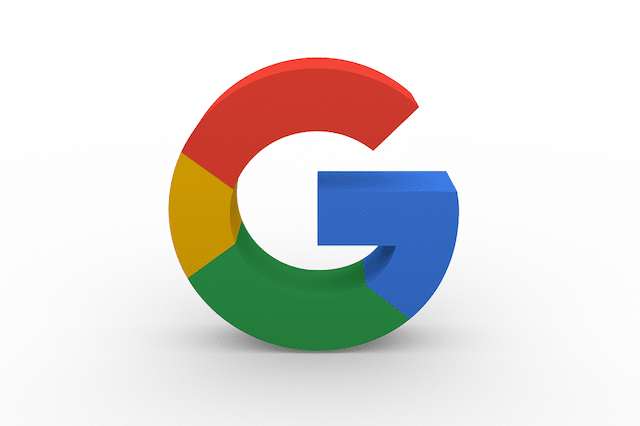Many people like to think that money can't buy happiness, or that money is the root of all evil, and so on and so forth, but we all also recognize that in practice, most of us need it and would like to have more of it. Money makes life easier and more comfortable. You can have what you need, and then what you want. It's a good feeling. So many of us really have a hard time understanding the idea of giving up money, especially a lot of money. But in the past, there have been people who have given up huge, huge amounts of money.
10. Bill Watterson refused to issue a license to Calvin and Hobbes

The comic book world has had some standouts over the years — Garfield and Peanuts have been around for decades. But Calvin and Hobbes rose to prominence in the mid-'80s and for a decade was one of the most popular and beloved strips ever created. And then its creator, Bill Watterson, decided to pack it up after a decade in 1995. But the legacy lives on.
Watterson has remained out of the spotlight for most of his career and has very conspicuously refused to license or sell his creation. The money he could make is staggering. Estimates are from 300 to 400 million dollars In fact, Watterson fought hard with the publishers. , who wanted to sell stripe. This means that all those stickers you see on the back of trucks with Calvin peeing on another automaker's logo are not official.
9. Dave Chappelle turned down $50 million

Few comedians will ever be bigger than Dave Chappelle, and as controversial as he was, there is no denying that he had a huge impact on the world of stand-up comedy, and at its peak, Chappelle's Show was incredibly popular. He was so popular that Comedy Central offered him 50 million dollars to continue the show beyond its second season in a deal that was unheard of in the comedy world. By the way , some sources claim that it was 55 million dollars .
Regardless of the dollar amount, Chappelle never closed the deal. Instead, he went to South Africa for a few weeks and sort of dropped off the world's radar. When he finally returned to the spotlight, he kept his reasons for leaving under wraps for a while, but he admitted to Oprah Winfrey that he was under a lot of stress and worried that some of the comedy they were doing was "socially irresponsible.". "In particular, he was concerned about one particular sketch that had caused someone on the set laugh in a way that he felt reinforced the racial stereotypes he was trying to ridicule, and perhaps fueled racism rather than ridiculed it.
8. Keanu Reeves turned down $11 million for "Speed 2"
Few actors have had a career like Keanu Reeves'. For years, Reeves has been the butt of jokes, his acting mocked with a knowing "wow" by people imitating his characters from Bill and Ted's Excellent Adventure" or "On the crest of a wave" , which seemed a little silly or wooden. But then he starred in in the films "Speed" And "Matrix" and established himself as a true action hero, which he continued in films like John Wick. That, and stories of his kindness and generosity in real life made him a fan favorite all over the world.
It has long been rumored that Reeves donated 70% of his salary to "The Matrix" the film crew, which is not true, but sounds plausible considering he has a private foundation to help children's hospitals and cancer research. He also refused salaries of 11 million dollars , when it was planned "Speed 2" , and instead decided to play Hamlet on stage in Winnipeg, Canada. His manager said he just didn't want to act. in two action films in a row Because of this choice he got into blacklisted by FOX for a whole decade.
7. Gauthier Decides Not to Monetize "Someone I Used to Know"

Gotye's 2011 hit "Someone I Used to Know" became a huge hit. The singer won several Grammys, and the video gained more two billion views on YouTube, making it one of the most popular music videos of all time. Unsurprisingly, those video views add up to a nice chunk of money, because that's how YouTube works. Or, it is, if you've set up YouTube to work, which Gotye never did.
The singer made it clear that he was not interested in selling his music, so he did not monetize his channel. As a result, he is estimated to have given up in 2017. near 10 million dollars. He also does not sell his song for use in films, although he has apparently been willing to allow some independent productions to use his music for free.
6. Weird Al Turned Down $5 Million in Beer Ads

"Weird Al" Yankovic has been parodying popular music since the early 1980s, and during this time many of his albums have become gold and platinum . He is now something of a cultural icon and continues to enjoy fame as a touring musician, with a couple of films under his belt.
Al said he was offered 5 million dollars for a beer commercial back in the '80s, when his star was really rising, but he turned it down. In other interviews, he went on to explain that he turned it down do several things on principle, despite the money involved.
As for the beer commercials, Al explained that he turned them down because he didn’t think they were appropriate. Since most of his fan base is kids, he felt like selling beer kind of betrayed that idea. And it’s true that much of his comedy, as juvenile as it is, is also family-friendly. He doesn’t even swear. Not that turning down the money was easy, mind you, he said it was a painful choice, but still one he felt he had to make in the end.
5. Will Ferrell was offered $29 million for the sequel "Elf" .
Having achieved fame in Saturday Night Live , Will Ferrell has starred in a number of major comedy hits, each of which has garnered for rent more 100 million dollars . One of his biggest was a Christmas movie. "Elf" , which grossed $222 million worldwide. It's no surprise that the film has with a budget of 33 million dollars a sequel appeared.
Despite the film's immense popularity, Ferrell turned down the sequel , which was supposed to get 29 million dollars a day . The reason was a harsh indictment of the film as a whole, because although Ferrell was very diplomatic in his wording, he basically said that if he made the film, he would have to promote it and tell people it was good, and he just didn't think the script was good. He also said that he didn't want to undo any good work, which he had done before, making a bad sequel, before admitting that one day he would make a completely bad sequel.
His co-star James Caan, who was on board, had a different version of what might have happened when he explained that Ferrell and the film's director (who you might remember was Jon Favreau) weren't getting along, and Ferrell didn't want to work with him.
4. Google Offers to Buy Friendster for $30 Million

Social media has more ups and downs than a roller coaster. Every TikTok is built on the wreckage of MySpace; every Instagram on Google Plus. One relic of a bygone social media era was a site called Friendster.
In 2002, Google approached the founder of Friendster30 million dollars The site was only a year old, and it seemed like a great deal. But others warned him against it. Tech companies had a way of adding value, and some people had turned down millions in the past to make billions later.
The offer was rejected in an attempt to turn Friendster into something bigger and more valuable. No doubt, if you remember Friendster at all, you know that never happened. What's worse is that the founder was offered $30 million in cash. He was offered $30 million in Google stock, which would be worth $100 million today. more than 1 billion dollars .
3. Vince Gilligan turned down $75 million for three more episodes of the series "Breaking Bad".

If you really love a TV show, it's always disappointing to learn that the show is coming to an end. It's safe to say that many people felt the same way when the hugely popular "Breaking Bad" , but perhaps no one suffered more than former Disney chairman Jeffrey Katzenberg.
In the show's final season, Katzenberg approached Vince Gilligan, the creator "Breaking Bad ", with a proposal. Three additional episodes show by $25 million apiece , or a total of $75 million. That was about five to eight times what the show was being made for at the time.
The plan was to take each episode and break it down into 5- to 10-minute chapters, then release each chapter for $1 to stream online. Gilligan said no, but Katzenberg was adamant that 10 million people would pay a dollar a day for 30 days if it worked. Keep in mind that Katzenberg was the man who founded Quibi, one of the biggest flops in recent history.
2. Jerry Seinfeld turned down $100 million
"Seinfeld" was one of the most popular sitcoms of all time. Rolling Stone puts him in 6th place of all the shows ever made. IGN put it at 10th place , and the Writers Guild of America West put him on second place The final episode became one of the most watched TV shows of all time, looked 76.3 million man. And with numbers like that, it almost seems obvious that someone wanted Jerry Seinfeld to come back, even though the show was over.
The comedian was offered a 10th season "Seinfeld" , just one season in which he would leave with stunning 100 million dollars . But he said no.
It's worth noting that syndication apparently helped Jerry Seinfeld and co-creator Larry David make money 400 million dollars on the show back in 2014, so maybe that $100 million wasn't as tempting as it seemed.
1. Latrell Sprewell Turns Down $21 Million Offer

Latrell Sprewell was once a fairly well-known NBA player who was a four-time NBA All-Star, but will likely forever be known for his incredibly poor decision-making skills. In one instance, Golden Warriors coach P.J. Carlesimo told Sprewell to add some mustard to a pass, meaning he had to put in more effort, and Sprewell responded by choking the coach on the floor. He was suspended for a full year. 68 games and cost himself about $6 million. He later signed with the Knicks and was immediately fined $250,000 for showing up with a broken leg that he forgot to mention.
At the end of the 2004–05 season, after playing one season with the Minnesota Timberwolves, he was offered a three-year, $21 million contract to remain with the team, which was significantly less than what the Knicks were paying him. Sprewell turned down the offer, saying, " I need to feed my family. "
You can take that statement to mean that Sprewell expected more money. He and his agent turned down other offers, planning to hold off on negotiations until the last minute, when teams would be so desperate they would make big offers. Only that never happened, and Sprewell never signed with anyone. He never played in the NBA again.
After losing his job, his partner sued him for $200 million. He was prosecuted for tax evasion and had his property seized.














Оставить Комментарий